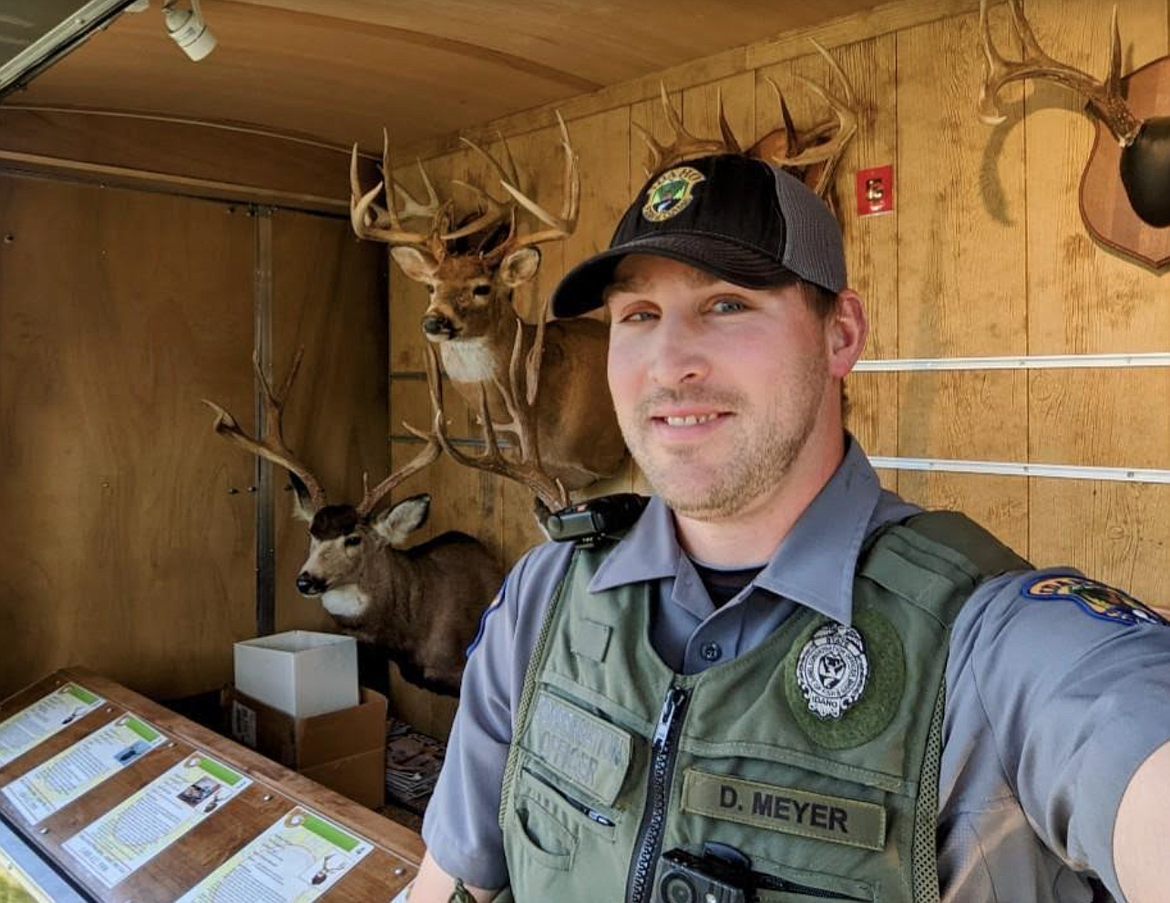What's a conservation officer?
Spend enough time recreating in the backwoods of North Idaho (or really any wildland in the country) and you're bound to come across one.
Animal cops. Tree cops. They have many unofficial names in the public.
Officially known as Idaho Fish and Game Conservation Officers, the responsibilities and powers of these law enforcement officials can sometimes be nebulous to those who may see them in their travels. If one doesn’t regularly recreate in the wilderness, they may not even know that this position even existed.
IDFG District Conservation Officer Doug Meyer explains that not only do conservation officers exist, they perform a vital service to maintain Idaho’s vast natural resources.
“I think first and foremost, it’s our job as officers to get the public educated and follow the rules that our biologists are putting forth to manage the animals,” he said of the job.
He added that it’s also largely about making it a fair playing field for everybody, both the animals and other hunters/fishers.
Conservation officers enforce these rules just as any other law enforcement official would- and with the same level of authority.
“People may not realize it, but our guys have the same authority as a State Trooper or a County Deputy,” Meyer explained. “We have red and blue lights on our truck. We can stop folks for basically anything, but that being said, our agency focuses on wildlife stuff.”
All conservation officers go through the same process as a deputy sheriff or trooper would in that they go through the Idaho POST academy. After the completion of the police academy, they then go through their own specialized training.
Outside of wildlife, conservation officers also deal with environmental issues such as timber theft, recreational vehicles, and littering. But just because their sphere of influence is wildlife related activities, that by no means keeps them from performing other law enforcement duties.
Just as any peace officer in Idaho can enforce wildlife laws, conservation officers can find themselves being the closest unit of any agency to a crime or incident and can respond accordingly.
“You might be asked more often than not to assist smaller communities,” Meyer said. “We monitor the county and state radio. If there’s a crash or anything, our guys will go.”
As far as their hours are concerned, all 15 of the Panhandle conservation officers largely work where and when they are needed.
“There’s not a set schedule,” Meyer explained. “Somedays you might work nights, some days you might work early morning. You kind of have a flexible schedule in the fact that it varies so much by season and patrol area.”
For example, since this current fall season has been a busy one, it’s not uncommon for officers to be working 50-60 hours a week right now.
IDFG Regional Communications Manager T.J. Ross explained that conservation officers also have a tendency to become really immersed in many of the small communities that they cover.
“For example, if you go to Bonners Ferry and talk to the locals, most of them know who their conservation officer is and they have a personal relationship with them.”
Partly because they work so closely with the community, a conservation officer’s go-to when it comes to enforcement is a verbal warning or a ticket.
Meyer said that the most common issue they deal with is fishing without a license.
“This time of the year though,” he explained. “it’s more along the lines of minor things like they don’t have their tag validated correctly, failure to leave evidence of sex, people not stopping at our check stations. They’re not super egregious, but they are way more common.”
If North Idaho residents want to learn more about who their conservation officer is, or to get a hold of them, they can call the Idaho Fish and Game Regional Office at 208-769-1414.

